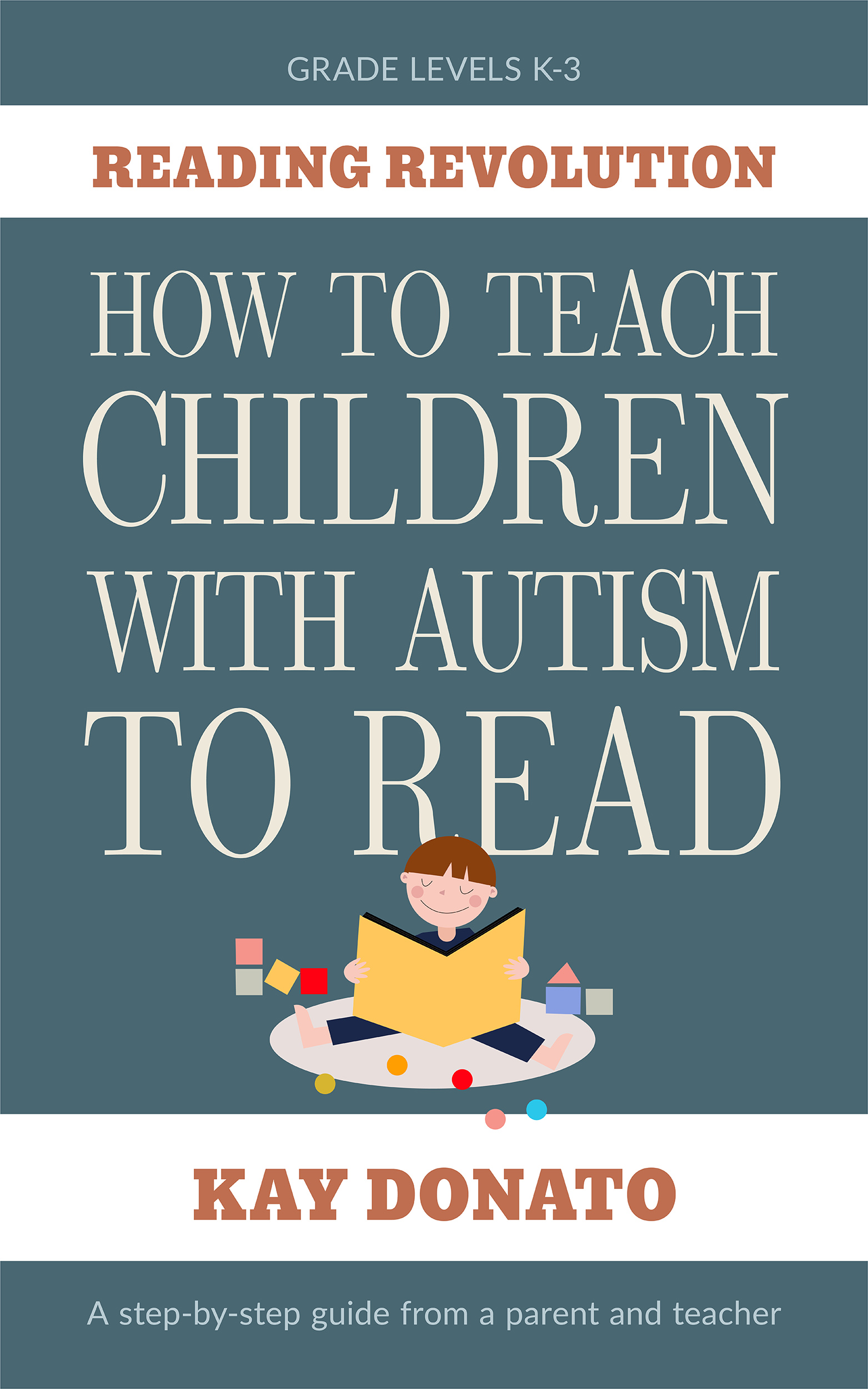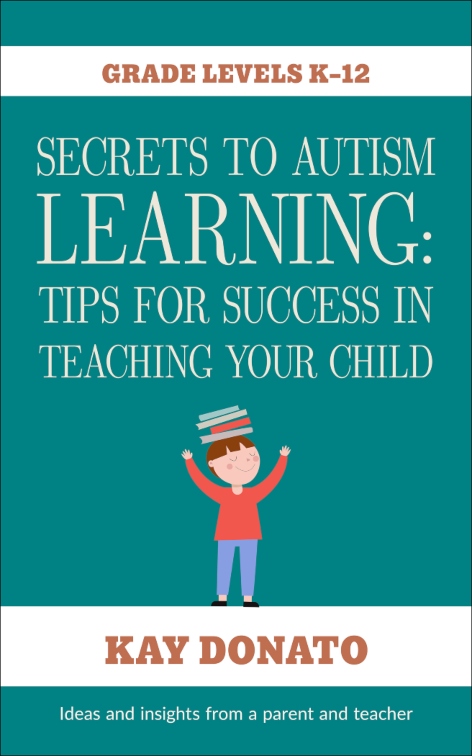Autism Behaviors: Help Finding the Cause
If your child often has troubling autism behaviors, understand that this is all too common in children with autism. But did you know that you might be able to control or even fix the problem?
Once you know why your child is misbehaving, you can be in a much better position of dealing with it effectively.
Note: Please see the disclaimer at the end of this article.
 Image by Tom Stitzer from Pixabay
Image by Tom Stitzer from PixabaySo why will knowing the cause of your child’s misbehavior enable to you find the right solution?
Because if you apply behavior strategies to a child having autistic behavior issues caused by a physical problem, the discipline probably won't help.
For example, if Susie is having temper tantrums caused by a severe reaction to a food she is allergic to, any discipline Mom and Dad apply will not only be ineffective but can be likely to increase her suffering. The solution, in that case, would be to eliminate the offending food from her diet.
On the other hand, if you try other strategies such as changing the diet or giving your child vitamins and minerals, and nothing you try works, it may be that your child simply needs discipline for the disobedience.
But we must be careful here.
Board Certified Behavior Analyst Dr. Mary Barbera cautions parents to never completely rule out medical reasons for behavior problems. While she teaches and uses ABA strategies, she also tells parents to remember that medical problems could be the source of their children’s issues. 1
Finding the reason for autism behavior problems can be challenging, but it is possible. It just takes a bit of detective work on your part, including a lot of observation and perhaps even research.
But I’m here to help. Our family has seen our share of behavior challenges, so hopefully, our experiences can benefit you today.
Through all our troubles, we have found that children can misbehave for many possible reasons.
Food Allergies or Food Sensitivities
 Gluten and dairy are common allergens among children with autism.
Gluten and dairy are common allergens among children with autism.As I mentioned earlier, Susie could be acting out because she's allergic to something she ate.
A severe behavior incident that happens immediately after drinking eggnog may be a sign of an allergy to dairy, eggs or something else in the beverage.
Allergies involve the immune system and can sometimes be serious or even life-threatening.
A food sensitivity is usually less serious and often involves digestive issues.
In a November 2014 article on the Autism Speaks website, Nutritionist Kelly Barnhill, director of clinical care at the Johnson Center for Child Health & Development in Austin, Texas, stated that many children with autism coming into their clinic test positive for either food allergies or food sensitivities.
She states that “food allergies and intolerances can certainly cause a child to feel uncomfortable and act out. Clearly inflammation and GI distress in any form doesn’t feel good for anyone.” 2
If you suspect a food allergy or food intolerance, you can schedule a visit to the doctor to have your child tested. There are separate tests for food allergies and food sensitivities.
But according to Aviva Romm, MD, the elimination diet "is considered the GOLD STANDARD for identifying food sensitivities." 3
The elimination diet involves removing the foods in question for a time and adding them back in, one at a time, while monitoring any reactions.
Widely acknowledged as the most reliable test for food sensitivities, the elimination diet can also be done at home and costs no more than the price you pay for food at the store.
Chemical Allergies or Sensitivities
 The toxins in many household cleaners can cause severe behaviors or other reactions in some children with autism.
The toxins in many household cleaners can cause severe behaviors or other reactions in some children with autism.Chemicals that cause allergic reactions can include cleaners, building materials, or other substances such as gasoline.
One child I know (I’ll call her Mary) is extremely sensitive to gasoline fumes. She has been known to pinch herself, hit herself, and flail about frantically when exposed to the toxic chemical.
Others may experience Obsessive Compulsive Disorder (OCD) attacks when exposed to toxic chemicals such as paints, solvents, etc.
The Autism Exchange states that “…children with autism spectrum disorders may have a ‘neurological’ reaction to foods, environmental toxins, and chemical toxicity.
"Autistic behaviors and characteristics may be a response to an inflammatory reaction going on with the immune system due [to] allergies which affect the child on a neurological level triggering unwanted behaviors, moods, and poor cognitive functioning.” 4
If you feel you need help finding out if your child has one or more chemical sensitivities, your doctor or health practitioner can help you figure this out.
You can also find out a lot by simply observing your child’s reactions when exposed to these chemicals. Anxiety, panic attacks, OCD attacks, feelings of agitation, or general feelings of illness can be caused by an allergic reaction.
Once you know what is causing your child’s symptoms, it may simply be a matter of reducing exposure to these substances.
For example, if you are at a gas station and your child is allergic to gasoline fumes, you may find that you have to keep the car windows rolled up until you leave the gas station.
Some children are allergic to regular laundry detergent and have reactions even when sitting in a room full of other people because of the soap people use to wash their clothes.
I like the Ecos and Seventh Generation brands of laundry detergent but there are other good brands out there. I recommend reading the labels to be sure the soap contains all-natural ingredients.
 Switching to more natural cleaners may be a key part of finding the cause of behavior problems. We have seen much benefit to making these changes in our family.
Switching to more natural cleaners may be a key part of finding the cause of behavior problems. We have seen much benefit to making these changes in our family.If your child is sensitive to harsh cleaners, try using natural cleaners such as Simple Green or even plain white vinegar. In addition to laundry detergent, Seventh Generation produces many other types of natural cleaners.
Even if your child doesn’t appear to be sensitive to synthetic cleaners or chemicals, I would suggest that you consider switching to non-toxic cleaners anyway as it will only help your family’s health to keep toxic chemicals out of the home.
I personally wouldn’t want to expose my family to toxic chemicals whether or not any of us had a chemical allergy or sensitivity.
You might also consider investigating to see if anything else in your home is causing a reaction. One of the members of our family suffered from a reaction to the carpet in our home.
Carpets are known to contain a lot of toxins, and they are hard to clean. They often harbor mold, parasites, and other uncleanliness.
If you can, it’s a good idea to switch to a non-toxic flooring choice such as tile.
Watch out for other possible contaminants such as flooring adhesives, wallpaper adhesives, paint, and particle board which can off-gas toxic fumes for years.
 Changing our lives to eliminate sources of toxins may seem overwhelming at first. But this will become second-nature the more we learn and practice, and the results are worth it.
Changing our lives to eliminate sources of toxins may seem overwhelming at first. But this will become second-nature the more we learn and practice, and the results are worth it.The safest paint you can buy should be labeled non-toxic as well as zero VOC (volatile organic compounds). Any paint that is only labeled as low VOC or zero VOC may still cause problems because some toxic chemicals may still be in the paint. Not all toxic chemicals are classified as VOCs. So it’s best to be sure the label says “non-toxic.”
With that said, test any paint you plan to use in your home. Even if it is labeled non-toxic and zero VOC, test a small amount to be sure your child doesn’t have a reaction before you paint an entire room with it.
And even if the paint is non-toxic, keep the room well-ventilated while you paint and for a while after you are finished painting, especially if anyone in the family is chemically sensitive.
Causes of Autism Behaviors: This is Not a Complete List
Food and chemical allergies and sensitivities are just the beginning when it comes to finding out what could be behind our children’s chronic behavior issues. There are many other possible culprits as well.
If you wish to be kept up-to-date with tips and with new articles I'll be posting to this site, scroll up to the top of this page and sign up for our newsletter.
Disclaimer: The information contained in this article and on this website is not medical advice and should not be used as a substitute for seeing your own or your child’s physician. You should always consult a medical doctor before considering any of the information on this website. It is highly recommended to visit a licensed physician regularly and follow his or her treatment plan for your child. If you have any specific questions about your child’s health, you should see his or her physician or other healthcare provider. If you think your child might have any type of physical or medical condition, you should get help from your healthcare provider immediately.
References
1 Dr. Mary Barbera, BCBA-D 2020, Problem Behaviors Related to Pain and the Four Functions of Behavior, Barbera Behavior Consulting, LLC, accessed 16 August 2020, <https://www.marybarbera.com/problem-behaviors-related-to-pain-four-functions-of-behavior/>
2 Autism Speaks 2014, Can Food Allergies Aggravate Autism Symptoms?, Autism Speaks, accessed 15 August 2020, <https://www.autismspeaks.org/expert-opinion/can-food-allergies-aggravate-autism-symptoms>
3 Aviva Romm, MD 2020, How + Why to Do an Elimination Diet, Aviva Romm, accessed 16 August 2020, <https://avivaromm.com/elimination-diet/>
4 The Autism Exchange 2016, Allergies in Children With Autism Resources, The Autism Exchange, accessed 15 August 2020, <https://www.theautismexchange.com/organized-information/biomedical/conditions/allergies>



New! Comments
Have your say about what you just read! Leave me a comment in the box below.